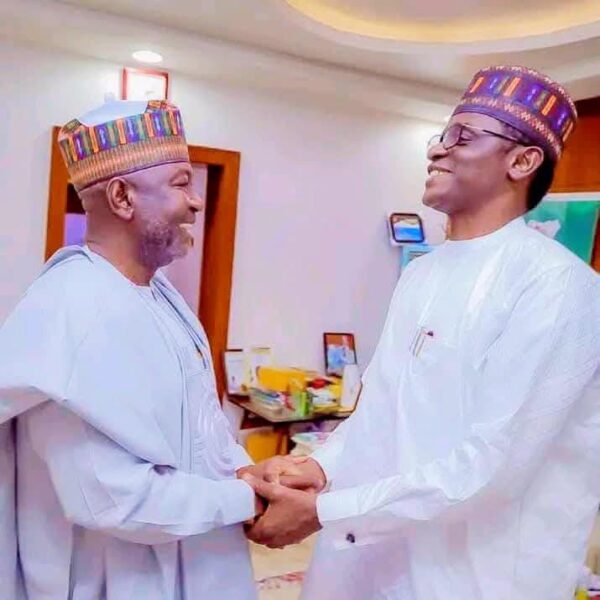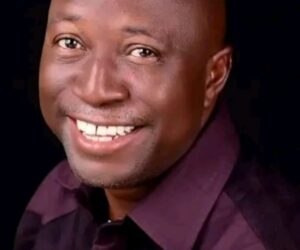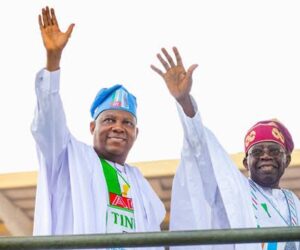In the crowded theatre of Nigerian politics, where noise often drowns substance, Engr. Abubakar D. Aliyu stands apart. The former Minister of Power is not garrulous or flamboyant. Neither is he driven by unbridled ambition. Instead, he is known for a leadership style that is cool, calm and deeply results-oriented – a rare blend of vision, loyalty and resilience at a time when such qualities are desperately needed in public life.
As the countdown to the 2027 elections gathers steam, Yobe State finds itself at a decisive crossroads. Politicians across Nigeria are already striking alliances and plotting new paths to power. Yet the real question for Yobe voters is not who can make the loudest promises, but who has the proven capacity to consolidate the state’s hard-won gains. After decades of steady progress, what Yobe needs now is not a break from its trajectory but a leader who can strengthen and expand it – a leader with the skills to turn achievements into enduring institutions.
Many observers believe that leader is Engr. Abubakar D. Aliyu.
Aliyu’s first major exposure to political life came in 2009 under tragic circumstances. Following the death of his elder brother, Governor Mamman Ali, he was selected as Deputy Governor by then-Governor Ibrahim Gaidam in the cause of an amazing career in the civil service where he was serving as a permanent secretary. Far from being a ceremonial figure, he took on additional portfolios overseeing health, commerce, integrated rural development as well as the rehabilitation and integration of Internally Displaced Persons among others. For over ten years – the longest tenure of any deputy governor in Nigeria – Aliyu built a reputation for humility, loyalty, accessibility and a go-getter.
Those who worked with him at the time speak of a man who rolled up his sleeves to inspect rural projects, listen to farmers and traders, interact and comfort IDPs and translate policy into concrete benefits. That experience gave him an intimate understanding of Yobe’s heartbeat – its challenges, its communities and its aspirations.
Because a goldfish has no hiding place, Aliyu’s competence soon attracted national attention. In 2019, due to his unalloyed loyalty and track record of service, he was nominated to serve at the highest decision-making body in Nigeria as Minister of State for Works and Housing, where he acquitted himself with distinction. Two years later, he was elevated to Minister of Power – a portfolio many dread for its complexity and public scrutiny.
Yet Engr. Abubakar D. Aliyu delivered. Under his watch, Nigeria recorded a surge in electricity generation and a decisive upgrade of transmission infrastructure. He opened the door to renewable energy investments and institutionalised data-driven planning. The relative stability in power supply witnessed under President Bola Ahmed Tinubu rests partly on the foundation laid by Aliyu and his team.
He made a lasting impression in December 2022 when he addressed the Ministerial Press Briefing Session organised by the then Federal Ministry of Information and Culture at the Radio House in Abuja. Without a script, he reeled out achievements in the power sector from memory, demonstrating both mastery of his brief and the rare ability to communicate technical issues with clarity.
Even in Abuja, Aliyu never lost sight of Yobe. Through strategic federal interventions, he facilitated upgrades to the Potiskum Power Substation, delivering more reliable electricity to thousands of households and small businesses. He rehabilitated the Fika Government Secondary School and provided amenities to several institutions of higher learning including the State University Teaching Hospital. He influenced the construction of vital bridges in Nguru and Tandari among other numerous infrastructure in towns and public institutions and also ensured the asphalting of key arteries across towns and villages. As the champion of renewable energy, Engr. Aliyu provided over 100 solar-powered boreholes and streetlights in plenty communities such as Mofura, Bidiram, Amshi, Dagona, Daya, Alajere, Biriri and Abbari, which bear his imprint. Quietly and consistently, he translated public office into public good.
Governor Mai Mala Buni has been widely acclaimed for his achievements in human capital development, agriculture, healthcare – especially primary healthcare – urban renewal and rural infrastructure. He has invested heavily in modern markets to boost commerce and empower ordinary citizens. His performance has been so stellar that his predecessor, Senator Ibrahim Gaidam, openly expressed satisfaction at the state’s trajectory.
But governance is a continuum. To transform Buni’s achievements into lasting institutions, Yobe requires a successor who can hit the ground running. This is where Aliyu’s mix of grassroots experience and federal exposure becomes critical. Having served both as deputy governor and as a cabinet minister, he understands how to navigate state and national systems to attract resources, forge partnerships and deliver large-scale programmes.
Normally, there is an unwritten tradition of rotating leadership among senatorial zones at the state level in Nigeria. This scenario also strengthens Aliyu’s case. After Zone A’s turn where the current Governor hails from, it is widely expected that Zone B should produce the next governor. The late Governor Mamman Ali hailed from Zone B, but his unfortunate demise caused power to shift. However, many people are even thinking beyond this calculation as they hinged their support not based on entitlement or family name. It is based on merit. Among all the likely contenders, they argue, Aliyu stands out for his education, track record, unblemished reputation and ability to unify the state.
Engr. Aliyu is a bridge between experience and innovation. He is the steady hand required to sustain and deepen Governor Mai Mala Buni’s remarkable legacy.
Aliyu holds a degree in Civil and Water Resources Engineering from the University of Maiduguri. He is a Fellow of the Nigerian Society of Engineers (NSE) and a registered member of the Council for the Regulation of Engineering in Nigeria (COREN). Beyond titles, he embodies a rare blend of technical expertise and political maturity. In an era when public trust in leaders is fragile, his untainted record and quiet competence have made him an indispensable asset to Yobe.
As Yobe marks 34 years since its creation, it has travelled an extraordinary journey – from the pioneering initiatives of the late Governor Mamman Ali, through the consolidation under Senator Ibrahim Gaidam, to the bold reforms and infrastructural renewal under Governor Mai Mala Buni. The question now is how to turn this cumulative progress into a springboard for inclusive growth.
The answer lies in electing a governor who has already demonstrated the capacity to design, execute and sustain complex programmes. It is easy to point to his decade as deputy governor, his stewardship of two federal ministries, and his track record of delivering tangible projects in Yobe even while serving in Abuja.
With the 2027 governorship race approaching, the stakes for Yobe could not be higher. The state has tasted steady progress. Its citizens now expect consolidation on Governor Buni’s gains. In Engr. Abubakar D. Aliyu, many see a leader who embodies continuity without complacency – a man prepared to scale up what works and fix what does not. He’s not known for controversies or scandals. He represents a bridge between the state’s storied past and its ambitious future.
Whether he throws his hat into the ring remains to be seen. But one thing is clear: Yobe’s next chapter will require more than rhetoric. It will require experience, vision and integrity – qualities that Engr. Abubakar D. Aliyu has consistently brought to every assignment. For a state poised on the threshold of greater possibilities, he may well be the steady hand it needs.
Mutah writes from Abuja







